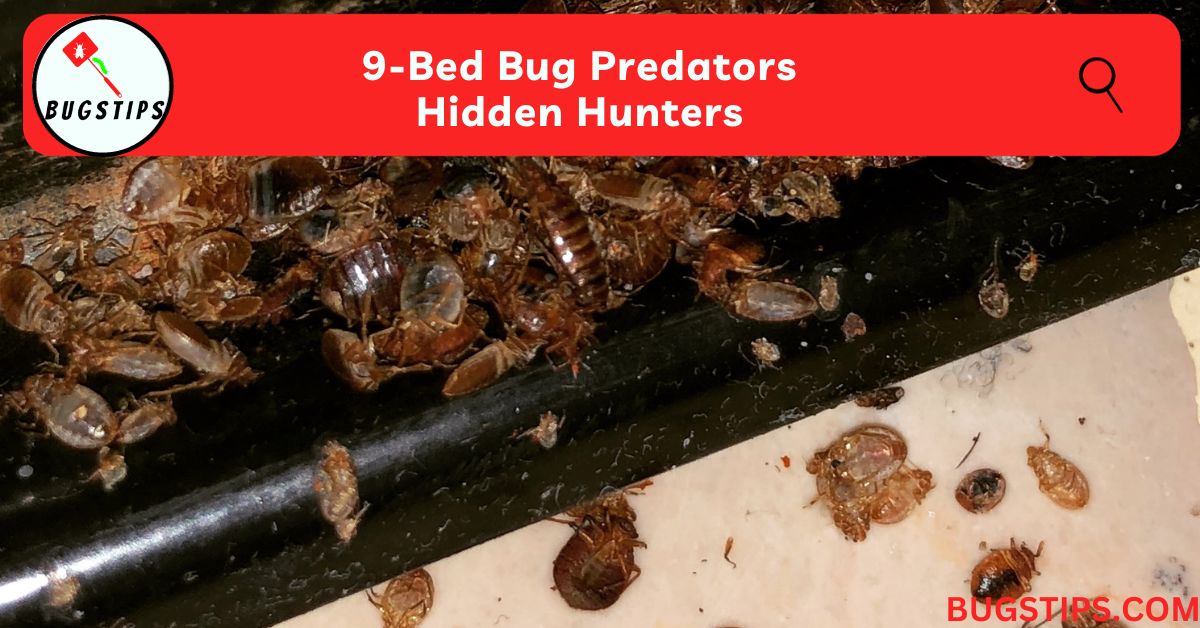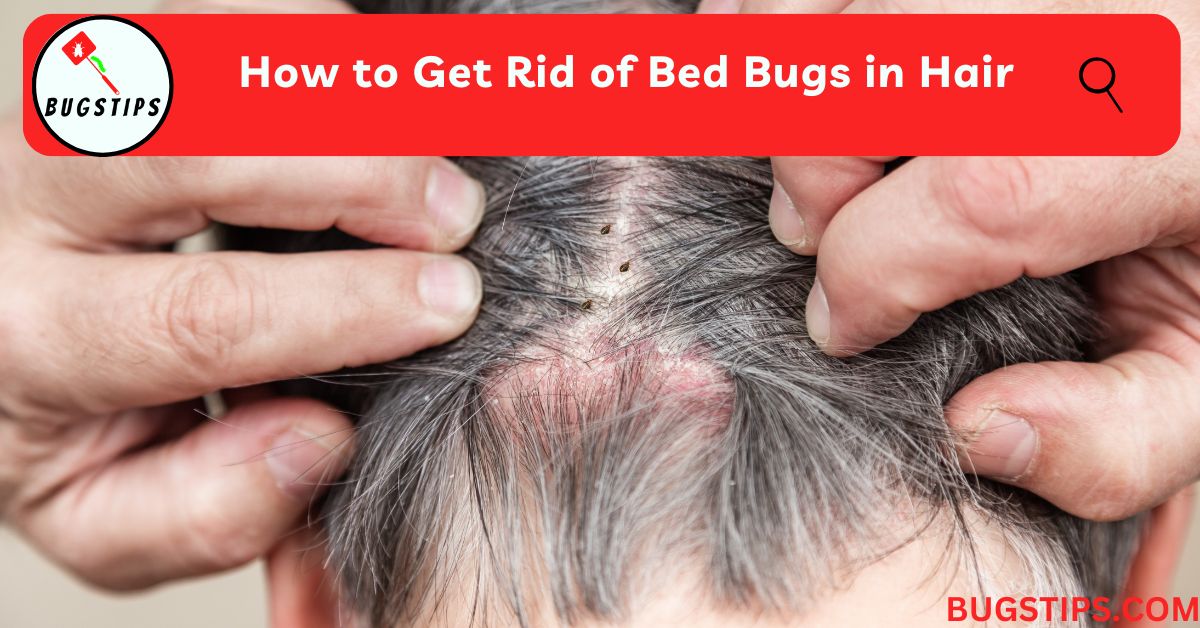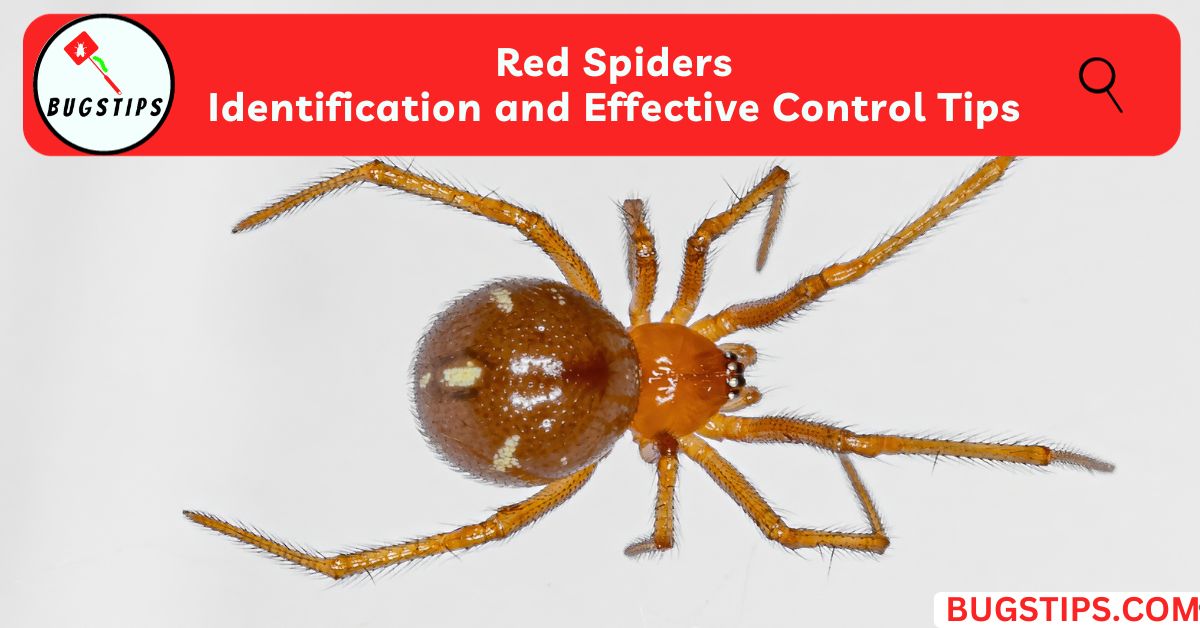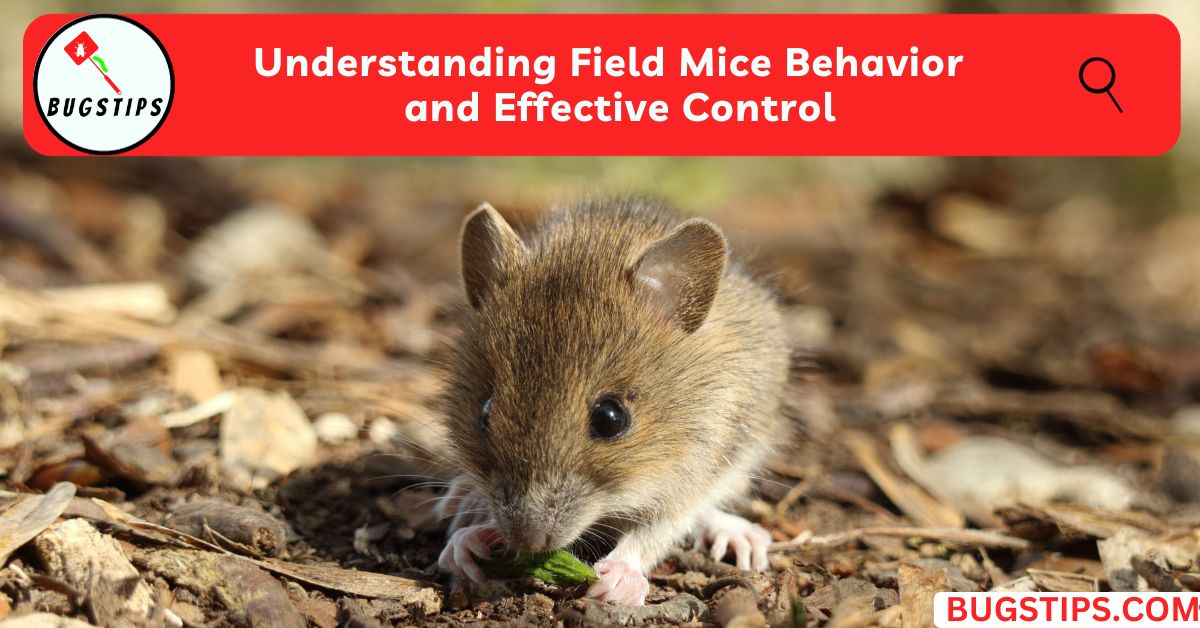This post may contain affiliate links which means as an Amazon Associate, this site may earn a small commission on qualified purchases made through links at no extra cost to you. Learn more on Affiliate Disclosure
Dealing with a bed bug infestation can be incredibly frustrating.
However, you may already have some helpful natural predators living in your home that can control these pesky pests.
Certain common insects and animals regularly feast on bed bugs and can keep their populations in check naturally.
In this article, we will look at the most effective bed bug predators that act as nature’s free pest control.
Understanding what eats bed bugs can help you encourage these predators to curb an existing infestation or prevent one from getting out of hand.
By utilizing natural bed bug predators already found in and around homes, you can combat these blood-sucking bugs eco-friendly without the use of chemicals.
Keep reading to learn about the many bugs, insects, and animals that consider bed bugs to be prey.
The Most Common Natural Bed Bug Predators
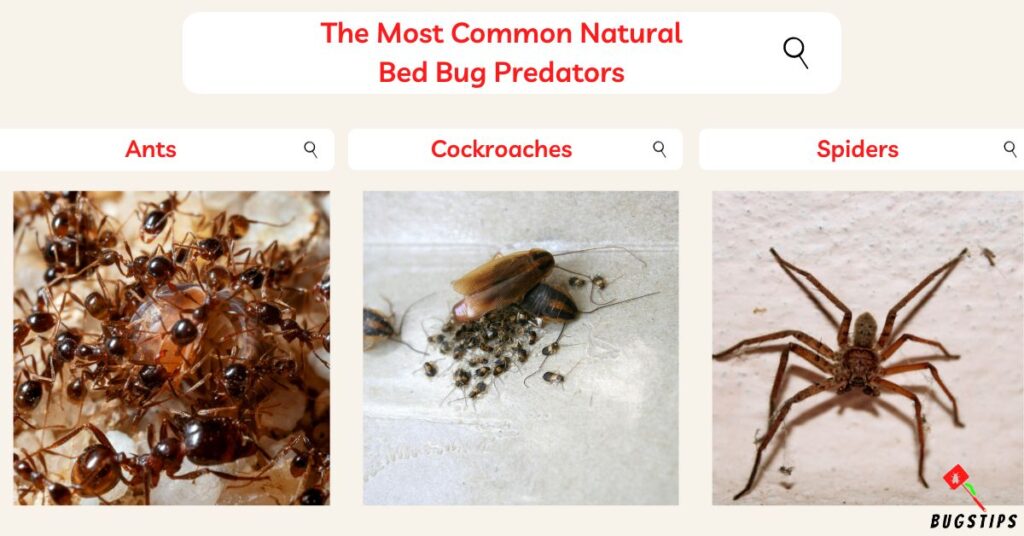
Ants
Ants are one of the most common natural predators of bed bugs.
They are already present in many homes and actively hunt for bed bugs.
Small ants can crawl into tiny cracks and crevices where bed bugs hide.
Once they find these harborages, ants will kill and eat bed bug eggs and nymphs.
Certain ant species like pharaoh ants and Argentine ants are especially aggressive when it comes to attacking bed bugs.
Having an ant population in your house acts as a free form of pest control against bed bugs.
Ants will continually patrol your home and eat any bed bugs or eggs they discover.
You May Also Like – Do Praying Mantis Eat Ants?
Cockroaches
Cockroaches will readily eat bed bugs when they come across them.
Their quick scurrying movements allow cockroaches to grab bed bugs trying to hide in cracks and crevices.
Cockroaches are able to squeeze into tight spaces where bed bugs congregate.
They use their chewing mouthparts to devour bed bugs of all stages, including eggs.
Cockroaches are opportunistic feeders and will eat whatever they can find, making bed bugs a frequent meal.
The German cockroach in particular is a predator of bed bugs.
If you already have household cockroaches, know that they are helping control any bed bugs living in your home as well.
Related Article – Do Spiders Eat Cockroaches?
Spiders
Spider webs are a death trap for bed bugs.
Spiders will catch and eat any bed bugs that crawl or get stuck in their webs.
Certain species like brown recluse spiders actively hunt for bed bugs and other insects.
They inject venom into the bed bugs to subdue them before feeding.
Spider webs placed in corners, ceilings, or furniture catch bed bugs as they try to move to new harborages.
The spider waiting nearby then quickly envelopes the trapped bed bug in silk before eating it.
Common house spiders and brown recluse spiders are two of the most useful spiders when it comes to eating bed bugs.
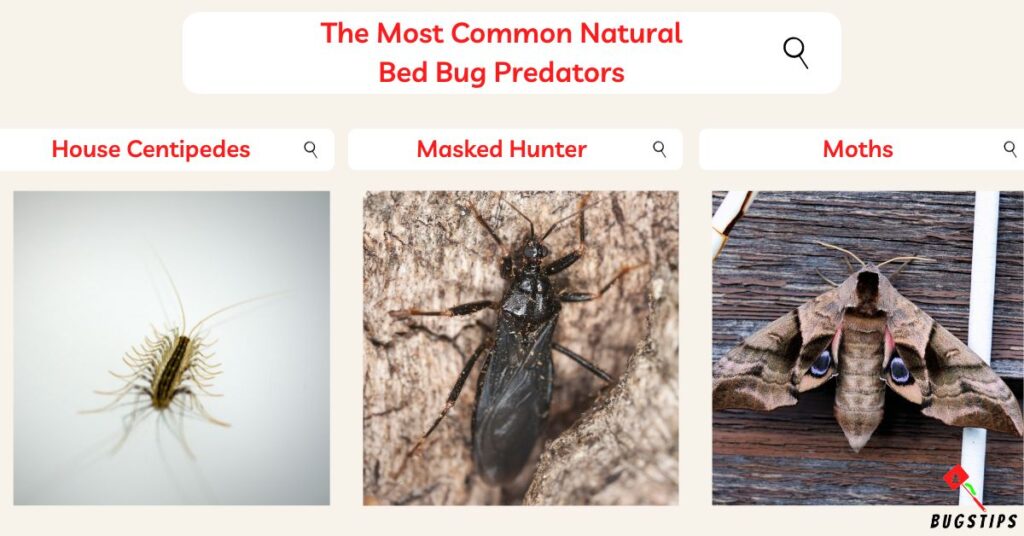
Related Article – 5 Bugs with Lots of Legs
House Centipedes
The house centipede is one of the best natural predators for controlling bed bugs.
These centipedes actively hunt for all types of insect prey to kill and eat, including bed bugs.
Their powerful jaws easily crush bed bugs that they find hiding in mattresses, furniture, walls, and other areas.
House centipedes will also feed on bed bug eggs.
Their dozen nimble legs allow them to quickly run down bed bugs as they try to flee.
Just a few house centipedes can drastically reduce a bed bug infestation.
Centipedes are stealthy nighttime hunters that will curb a bed bug problem without you even noticing.
Masked Hunter
Masked hunter insects, also known as assassin bugs, are stealthy predators that eat bed bugs.
Found naturally throughout the U.S., masked hunters use their sharp straw-like mouthpart to stab bed bugs.
They then inject enzymes into the bed bugs to liquefy their insides before sucking out their predigested fluids.
Masked hunters will consume all stages of bed bugs including adults, nymphs, and eggs.
Releasing assassin bugs in areas of high bed bug activity can provide rapid control.
A few of these vicious predators can wipe out hundreds of bed bugs in just a couple of weeks.
You May Also Like – 14 Little Black Bugs That Smell When Squished
Moths
Many types of moths play a role in controlling bed bugs during their larval stage.
Moth larvae, commonly known as caterpillars, can crawl into tiny spaces where bed bugs lay their eggs.
Once inside, they use their chewing mouthparts to devour bed bug eggs before they can hatch.
The tiny hairy caterpillars of dust moths are especially effective at sneaking into bed bug harborages and eating the eggs.
Adult moths may also opportunistically feed on bed bugs when they come across them while flying around homes.
Inviting moths inside either intentionally or accidentally can help unleash their larvae on bed bug populations.
You May Also Like – What Do Hornworms Turn Into?

Geckos
Geckos are adept nighttime hunters of bed bugs.
They use their specialized toe pads to climb walls, furniture, and ceilings in search of insect prey.
Geckos can access hard-to-reach areas where bed bugs may be hiding out during the day.
With their incredible night vision, geckos can see bed bugs congregating in dim corners and crevices at night.
They then use their long tongues to quickly snatch up unsuspecting bed bugs.
The sticky pads on their feet allow geckos to easily pursue bed bugs trying to scatter away.
A few resident geckos can eliminate hundreds of bed bugs over the course of a month.
Their after-dark prowling offers natural pest control when you are sleeping.
Related Article – What Does Lizard Poop Look Like?
Lizards
Lizards are swift daytime hunters that will readily consume bed bugs.
Fast-moving lizards like skinks and swifts actively search for insect prey during the day.
Their excellent eyesight allows them to spot bed bugs easily.
Once detected, they quickly dart in and snatch up the bugs with their jaws before gulping them down.
Small lizards can even scurry into cracks and crevices where bed bugs hide.
Their long tongues let them grab bed bugs that are just out of reach.
Having lizards present provides free all-day pest control, as they continuously feed on bed bugs they find while scampering around homes.
Birds
Certain bird species will eat bed bugs when given the chance.
Small songbirds like chickadees, swallows, and martins often feed on tiny newly hatched bed bugs.
Sparrows, wrens, and starlings may eat adult bed bugs as well.
Birds that nest in small cavities are especially likely to consume bed bugs, as they can reach into cracks and crevices.
Some birds may even learn to associate human homes with an abundant food source like bed bugs.
Allowing bird nests near or inside homes can bring in bed bug predators that offer natural control.
A few fed-up birds could make a surprising impact on a bed bug infestation.
Related Article – Do Birds Eat Spiders?
Do Mice Eat Bed Bugs?
Mice are not likely to specifically seek out bed bugs as a food source. However, they may occasionally eat them if they come across bed bugs in their environments.
Bed bugs would provide a small supplemental food source for mice living in close proximity to an infestation.
But solely relying on mice to eliminate a bed bug problem would not be an effective solution.
Mice have very poor eyesight and instead use their senses of smell, touch, and taste to find food.
Since bed bugs release very little odor, mice would likely not be able to smell them.
And bed bugs move very quickly, making it unlikely a slow-moving mouse could catch them.
Overall, the impact of mice feeding on bed bugs is minimal.
Their presence alone will not deter or eliminate a bed bug infestation.
But if you already have mice, know that they may be providing a small level of control by eating some bed bugs opportunistically when they come across them.
Just don’t expect mice to solve a bed bug problem for you.
Relying on other natural bed bug predators is a smarter approach.
You May Also Like – What Can Mice Chew Through?
Do Bed Bugs Eat Other Bed Bugs?
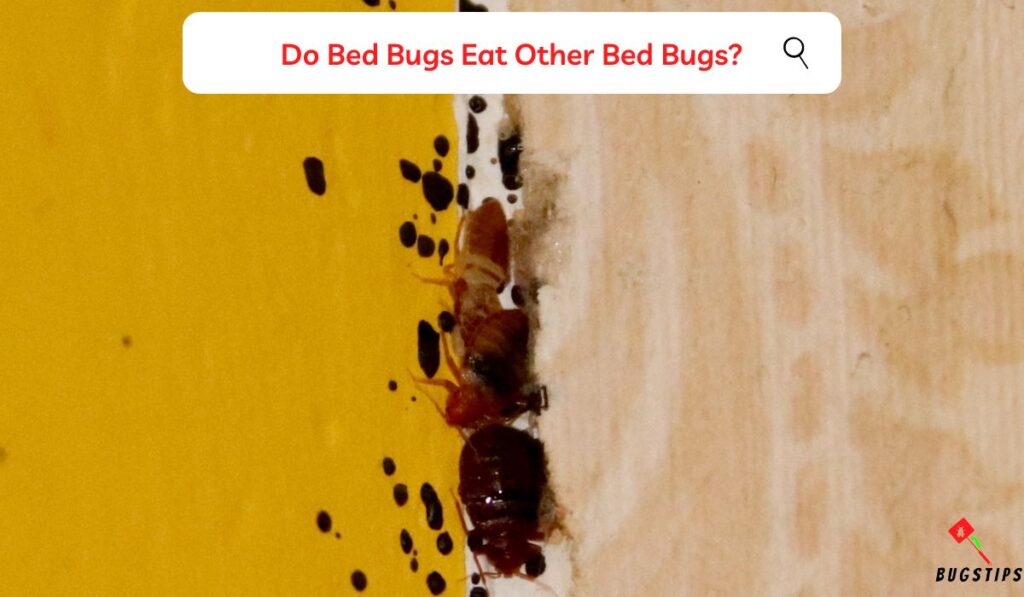
Bed bugs are not known to be cannibalistic under normal conditions. They generally do not eat other bed bugs.
There are a couple of reasons for this.
- Bed bugs are highly adapted to feed on blood as their sole food source. Their mouths and digestive systems are designed specifically for consuming blood, not other bed bugs.
- Adult bed bugs release pheromones that signal to other bed bugs that they are of the same species. These chemicals prevent bed bugs from mistakenly attacking each other.
However, there are a few exceptional situations where bed bugs may turn to cannibalism.
- If a large number of bed bugs are confined in a small space with no access to blood meals, they may resort to eating each other to survive.
- If a group of bed bug nymphs hatch before finding a host to feed on, the older nymphs may consume the younger siblings.
- Adult bed bugs that are starved for long periods may occasionally eat bed bug nymphs or eggs out of desperation.
While such cases are rare, they do demonstrate that bed bugs can turn to cannibalism in extreme conditions when other food sources are not available.
But under normal circumstances, bed bugs do not purposely eat other bed bugs and prefer to solely dine on blood.
Their biology drives them to attack hosts, not each other.
Related Article – Bed Bug Shells, Skins, and Casings| Complete Guide
Final Thoughts
Bed bugs can certainly be a nuisance, but luckily nature has provided us with some natural pest control allies.
A variety of common insects and animals prey upon bed bugs, acting as free exterminators.
Cultivating these bed bug predators in and around your home can help suppress infestations naturally.
Ants, cockroaches, spiders, and centipedes are all adept hunters of bed bugs that will help keep their numbers down.
Reclusive predators like masked hunters and moth larvae can also decimate bed bug populations undetected.
Allowing lizards, geckos, and insect-eating birds access to your living space brings in more bed bug eaters.
While a few opportunistic mice may nibble on bed bugs, they should not be relied upon as a control method.
Focus instead on attracting and keeping those species that actively feed on bed bugs.
Avoid killing these beneficial predators that act as nature’s pest management.
A team of natural bed bug predators provides a chemical-free defense against infestations.
Use this knowledge of what eats bed bugs to your advantage.
Welcome friends like ants and spiders, and understand their presence is helping curb bed bug problems free of charge!
FAQs
Do spiders eat bed bugs?
Yes, spiders readily eat bed bugs that get caught in their webs. Some species like brown recluses actively hunt for bed bugs too.
Do cockroaches eat bed bugs?
Yes, cockroaches will opportunistically eat bed bugs if they come across them while scavenging.
Do lizards eat bed bugs?
Yes, small lizards like geckos and skinks are effective predators of bed bugs. They will eat any they find while hunting in homes.
Do centipedes eat bed bugs?
Yes, centipedes are eager predators of bed bugs. They actively hunt for them and kill them with their powerful jaws.
Do ants eat bed bugs?
Yes, ants kill and eat bed bug eggs and nymphs. Certain ant species aggressively hunt for bed bugs
Do dogs eat bed bugs?
No, dogs do not typically seek out or eat bed bugs.
Do cats eat bed bugs?
No, cats are not known to hunt or consume bed bugs as a food source. But they may occasionally kill one by swatting it.
Resources – (for further reading)
National Library of Medicine – Stress Tolerance of Bed Bugs: A Review of Factors That Cause Trauma to Cimex lectularius and C. hemipterus
Center for Invasive Species Research – Bed Bugs | Center for Invasive Species Research

